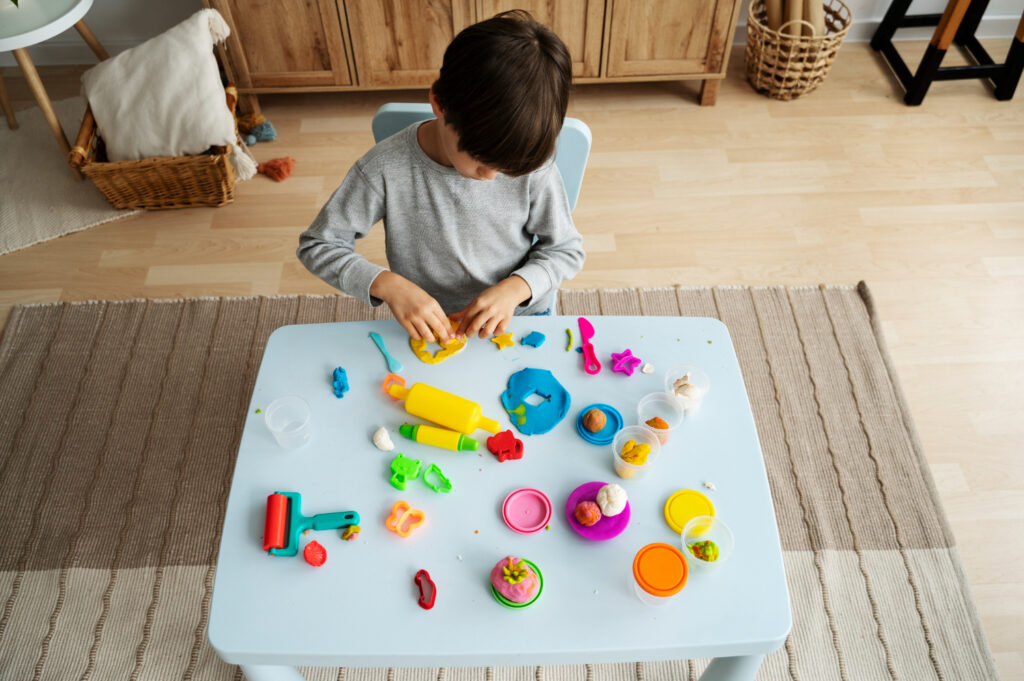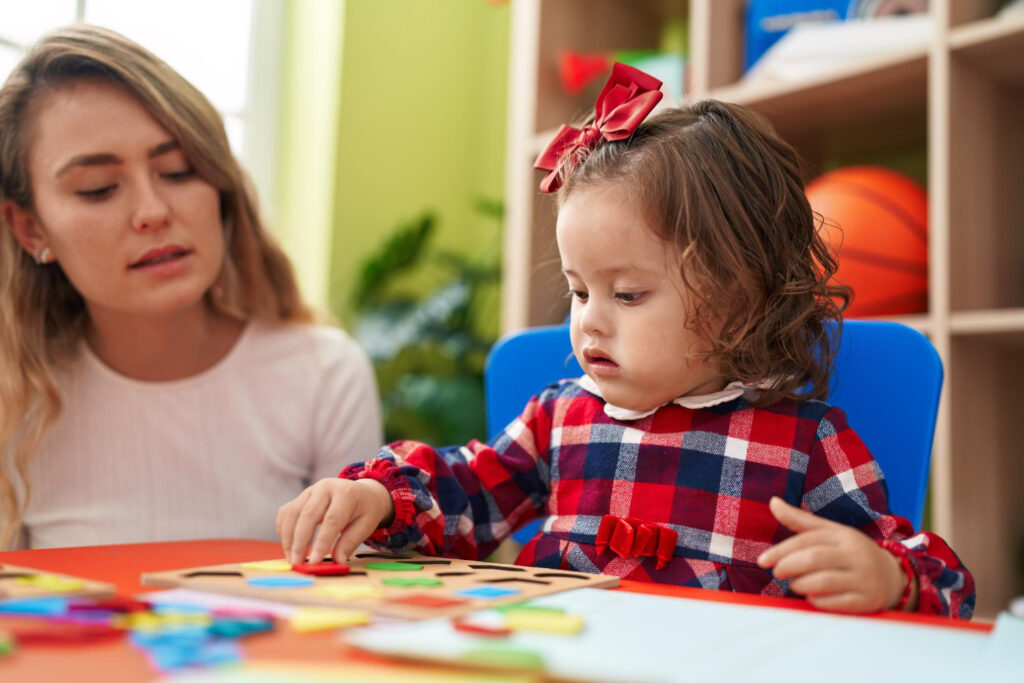
As your little one steps into the delightful realm of toddlerhood, their curiosity knows no bounds. At the age of two, they’re like sponges, soaking in knowledge from every experience and interaction. As parents, guardians, or caregivers, nurturing this innate thirst for learning is not only essential but also incredibly rewarding. Incorporating engaging learning activities into your daily routine not only stimulates their young minds but also fosters holistic development. Here are some exciting and educational activities tailored to captivate the imagination of your two-year-old:
1. Sensory Bins:
Create sensory bins filled with various textures like rice, beans, or sand. Add in cups, spoons, and small toys for scooping and pouring. This hands-on activity enhances their tactile senses and fine motor skills while providing endless entertainment.
2. Mess-Free Painting:
Opt for mess-free painting activities using materials like watercolor pens, foam brushes, or even their fingers on a large zip-lock bag filled with paint. This allows them to explore color mixing and creativity without the worry of a messy cleanup.
3. Nature Walks:
Take leisurely strolls in the park or around the neighborhood, encouraging your child to observe and interact with nature. Collect leaves, sticks, or rocks along the way to later explore and discuss their unique characteristics at home.
4. Story Time with Props:
Bring storybooks to life by incorporating props and interactive elements. Act out characters, use puppets, or even simple costumes to make storytelling sessions immersive and engaging, fostering language development and imagination.
5. Music and Movement:
Encourage your child to dance and move to different genres of music. Provide simple musical instruments like shakers or tambourines to enhance rhythm perception and coordination while having a blast.
6. Sorting and Matching Games:
Introduce sorting and matching games using everyday objects like colored blocks, buttons, or fruits. This activity promotes cognitive skills such as categorization and problem-solving in a fun and interactive manner.
7. DIY Sensory Playdough:
Whip up a batch of homemade playdough and add natural scents like vanilla or lavender for a multisensory experience. Let them mold, shape, and explore their creativity while strengthening hand muscles and improving dexterity.
8. Water Play:
Set up a water table or simply fill a basin with water and let your child splash and play with cups, funnels, and water-safe toys. This activity not only entertains but also introduces basic scientific concepts like buoyancy and volume.
9. Puzzles and Building Blocks:
Provide age-appropriate puzzles and building blocks to challenge their problem-solving skills and spatial awareness. Start with simpler puzzles and gradually increase the complexity as they develop confidence and proficiency.
10. Imaginative Play:
Foster imaginative play by providing dress-up clothes, pretend kitchen sets, or toy vehicles. Encourage them to role-play different scenarios, allowing their creativity to soar while honing social and emotional skills.

By incorporating these engaging learning activities into your child’s daily routine, you’re not just keeping them entertained but also laying a strong foundation for their future growth and development. Remember, the key is to keep it fun, flexible, and tailored to your child’s interests and abilities. Embrace the wonder of toddlerhood and embark on this enriching journey of discovery together!

